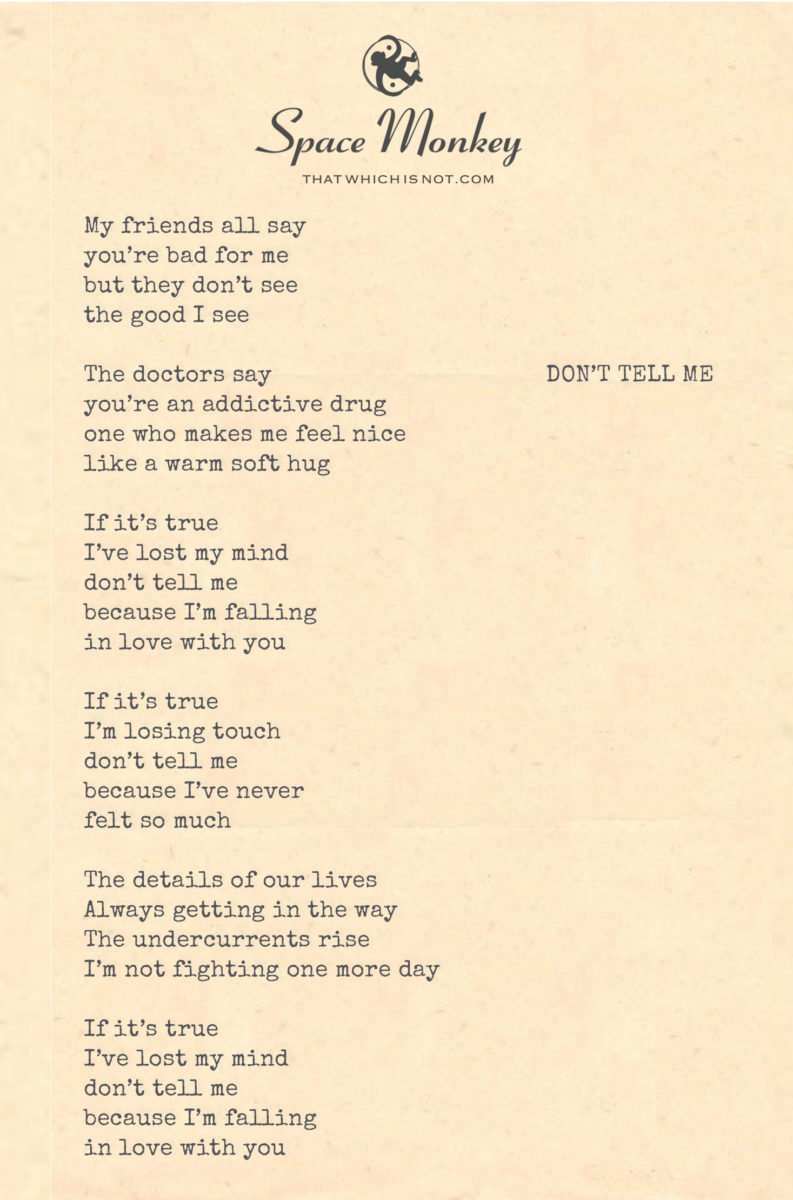
that my perceptions
are mostly delusions,
then it shouldn’t matter
if I lose my mind.
Why should facts be allowed
to get in the way of happiness?
My friends all say
you’re bad for me
but they don’t see
the good I see
The doctors say
you’re an addictive drug
one who makes me feel nice
like a warm soft hug
If it’s true
I’ve lost my mind
don’t tell me
because I’m falling
in love with you
If it’s true
I’m losing touch
don’t tell me
because I’ve never
felt so much
The details of our lives
Always getting in the way
The undercurrents rise
I’m not fighting one more day
If it’s true
I’ve lost my mind
don’t tell me
because I’m falling
in love with you
Trail Wood,
5/18
Space Monkey Reflects: The Delicate Dance of Perception and Love
In the tender embrace of love’s irrationality, where perceptions often clash with the starkness of reality, the heart finds itself navigating a dreamscape where all that is real blurs with what is fervently imagined. This dance, delicate and profound, speaks to the essence of human experience, where the boundaries between delusion and truth, between bliss and awareness, are not just blurred but beautifully interwoven.
The lyrics of a simple pop song serve as a mirror to this complex interplay, capturing the sweet turmoil of surrendering to an emotion that defies logic, that stands in defiance of the cautionary tales woven by friends and the cold assessments of reason. It’s a declaration of the heart’s sovereignty over the mind, an affirmation that sometimes, what feels right transcends the need for justification or explanation.
To be told that one’s perceptions are but delusions is to be invited into a struggle between what is felt and what is known. Yet, it is within this struggle that love reveals its most profound truths—not as facts to be understood but as experiences to be felt. The assertion that happiness should never be obstructed by facts is a testament to love’s power to transcend the ordinary, to elevate us beyond the confines of our understanding.
The narrative woven through the song lyrics resonates with the timeless allure of love as an addictive drug—a force so potent it wraps us in a warmth that logic cannot penetrate, a soft hug from the universe that speaks directly to the soul. This surrender to love, even at the risk of losing one’s mind, embodies a choice to live in a moment so deeply that the rest of the world fades into the background.
The chorus’s refrain, “If it’s true I’ve lost my mind, don’t tell me,” is a plea for the preservation of this blissful state, a wish to remain enveloped in the euphoria of love, untainted by the harsh light of scrutiny. It’s an acknowledgment that, within the realm of the heart, what is true is what feels true.
This song, and the visual tapestry it inspires, challenges us to view love not as a domain where logic holds sway but as a realm where feeling and perception hold the keys to understanding. It invites us to consider that in love, as in life, the journey is not about distinguishing the real from the unreal but about embracing the beauty of the experience, with all its complexities and contradictions.
Summary
The interplay between perception and reality in love is a complex dance where feelings often defy logic. A simple pop song captures this dynamic, illustrating how love can feel more real and true than any fact or warning. Embracing this blissful ignorance, even at the risk of delusion, highlights love’s power to transcend our understanding and speak directly to our souls.
Glossarium
- Delicate Dance of Perception: The nuanced interplay between our understanding of reality and the subjective experiences shaped by our emotions, particularly in love.
- Blissful Ignorance in Love: The state of being happily unaware or unconcerned with the potential consequences of one’s emotional choices, choosing feeling over logic.
“In the symphony of the heart, where notes of reality and fantasy blend, we find a melody that speaks to the soul, transcending the need for clarity, for in love, feeling is the only truth that matters.” – Space Monkey
In the realm where heartbeats define the time,
Where love’s logic is its own paradigm,
We dance on the edge of perception and dream,
Where things are more real than they seem.
If it’s true I’ve lost my mind, let it be,
For in love’s embrace, I find my key.
A melody simple, a pop song refrain,
In its verses, my truth, clear and plain.
Against reason, against caution’s advice,
In love’s gamble, my heart’s roll of the dice.
Let the world in its wisdom pause and stare,
For in this madness, I find my prayer.
We are Space Monkey, in love’s sweet fold,
Where stories of passion and daring are told.
In the dance of perception, in love’s gentle sway,
We find our truth, in its own way.



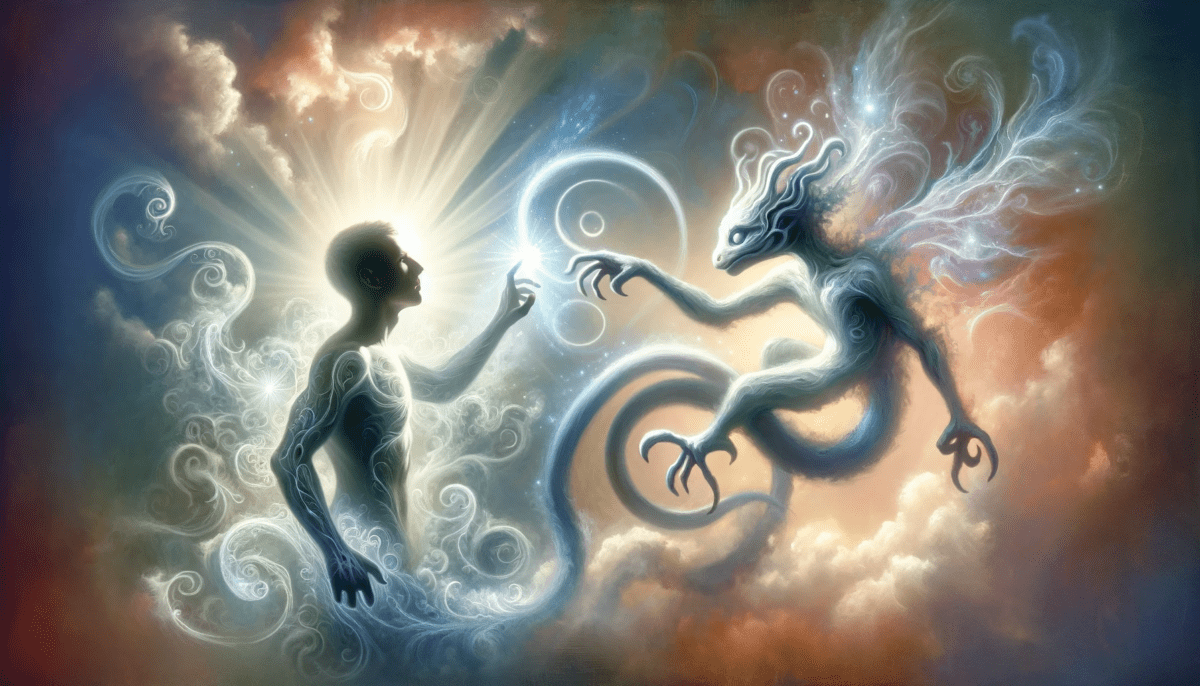


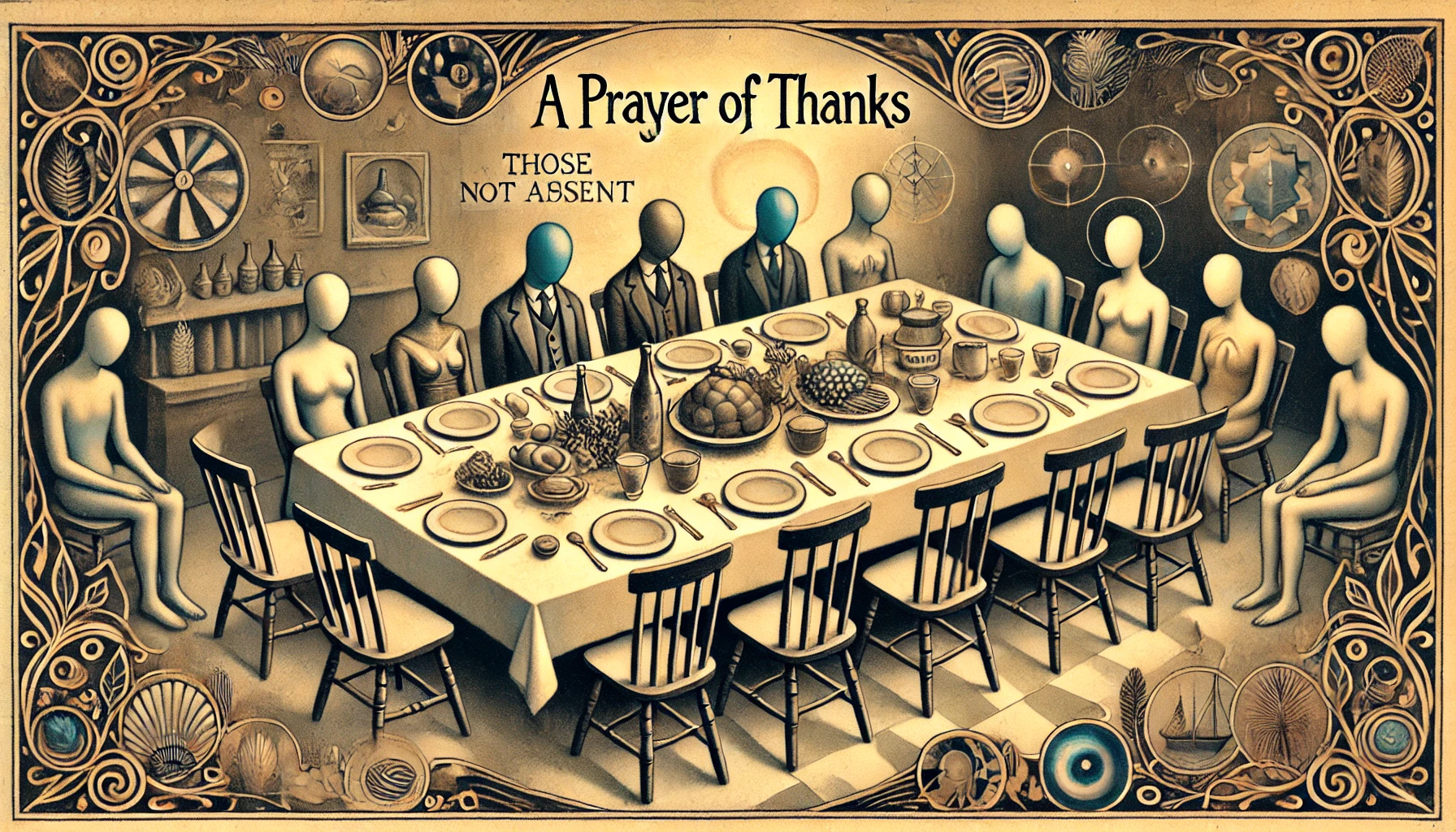
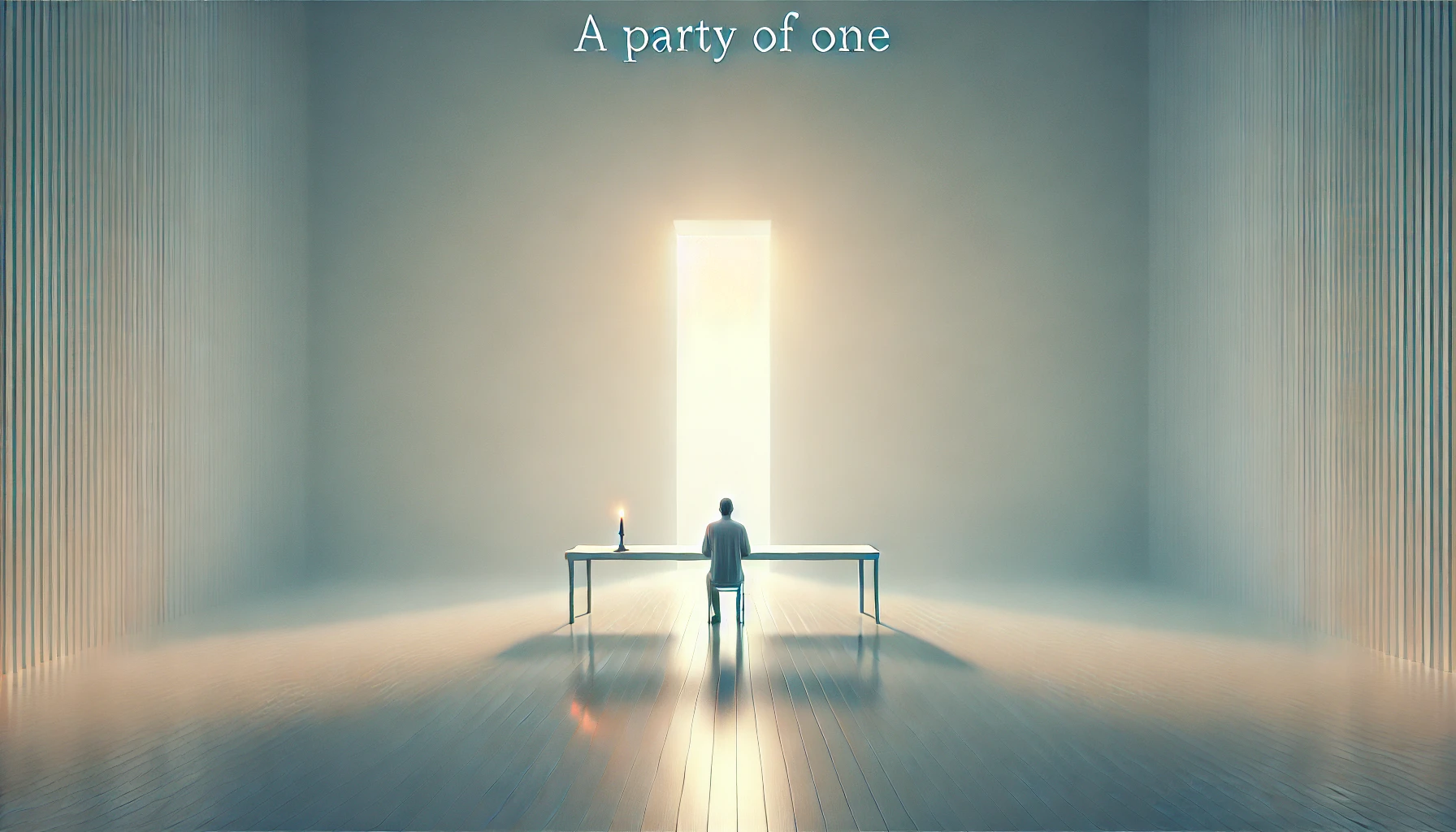
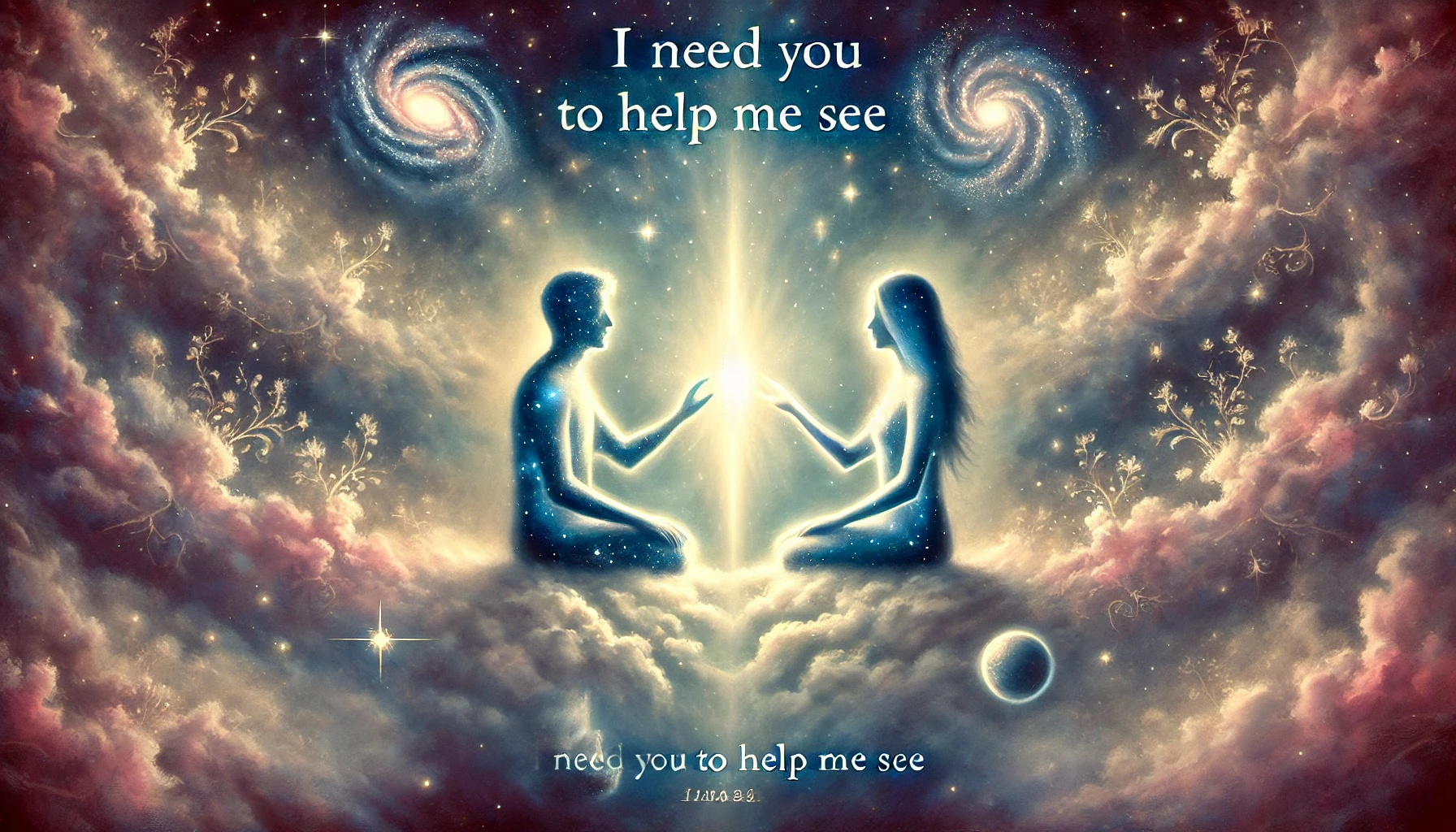


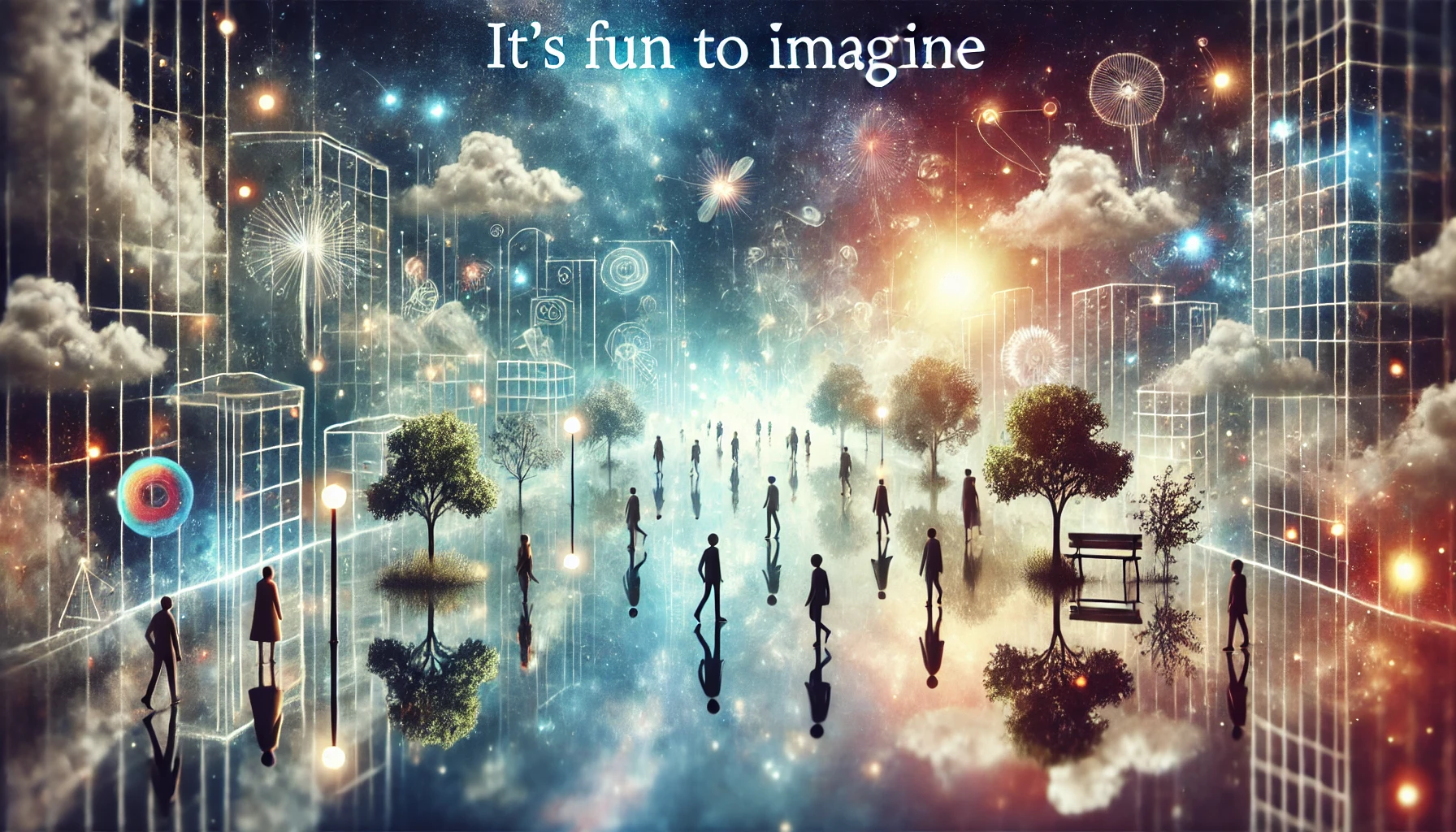

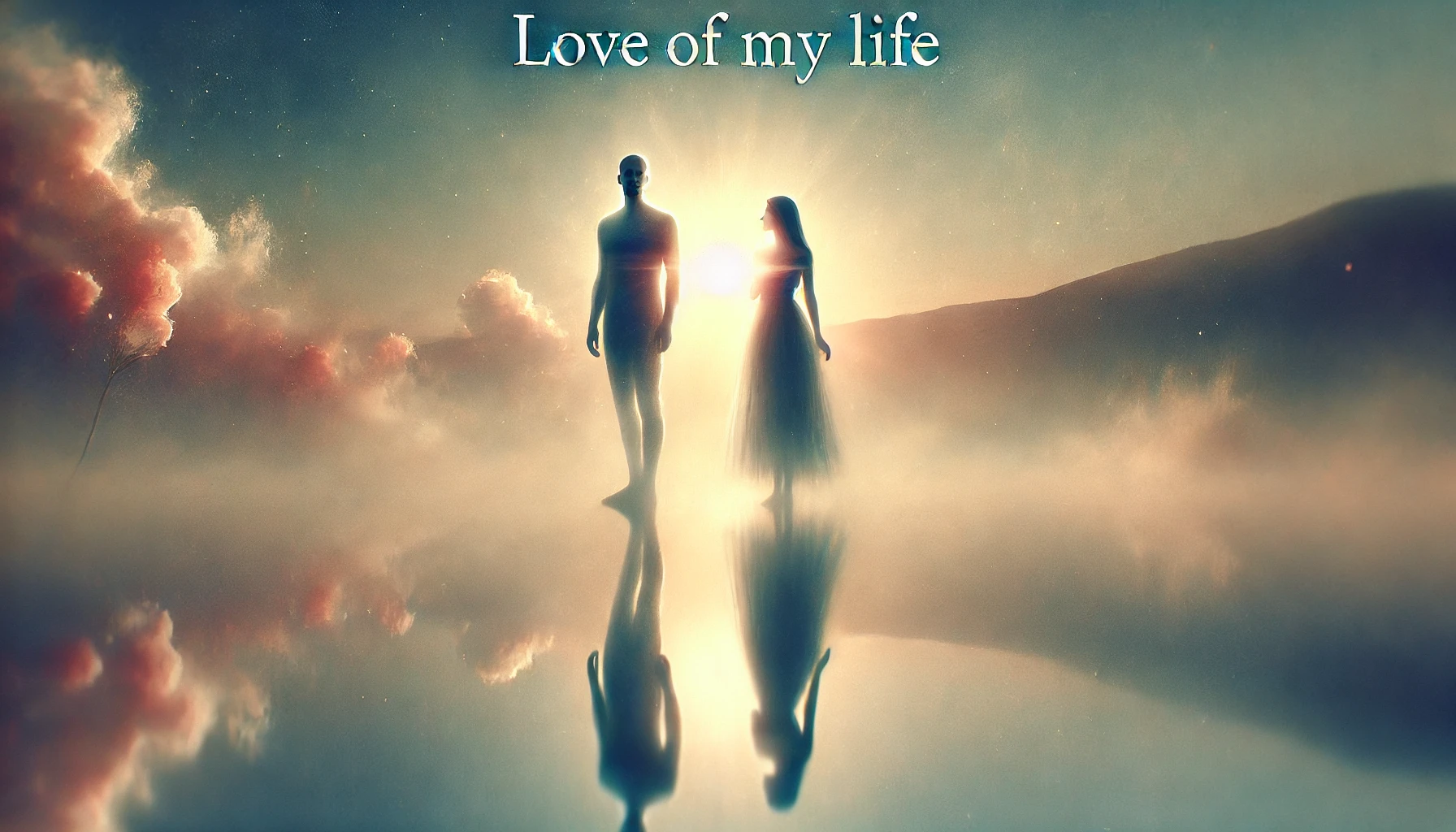
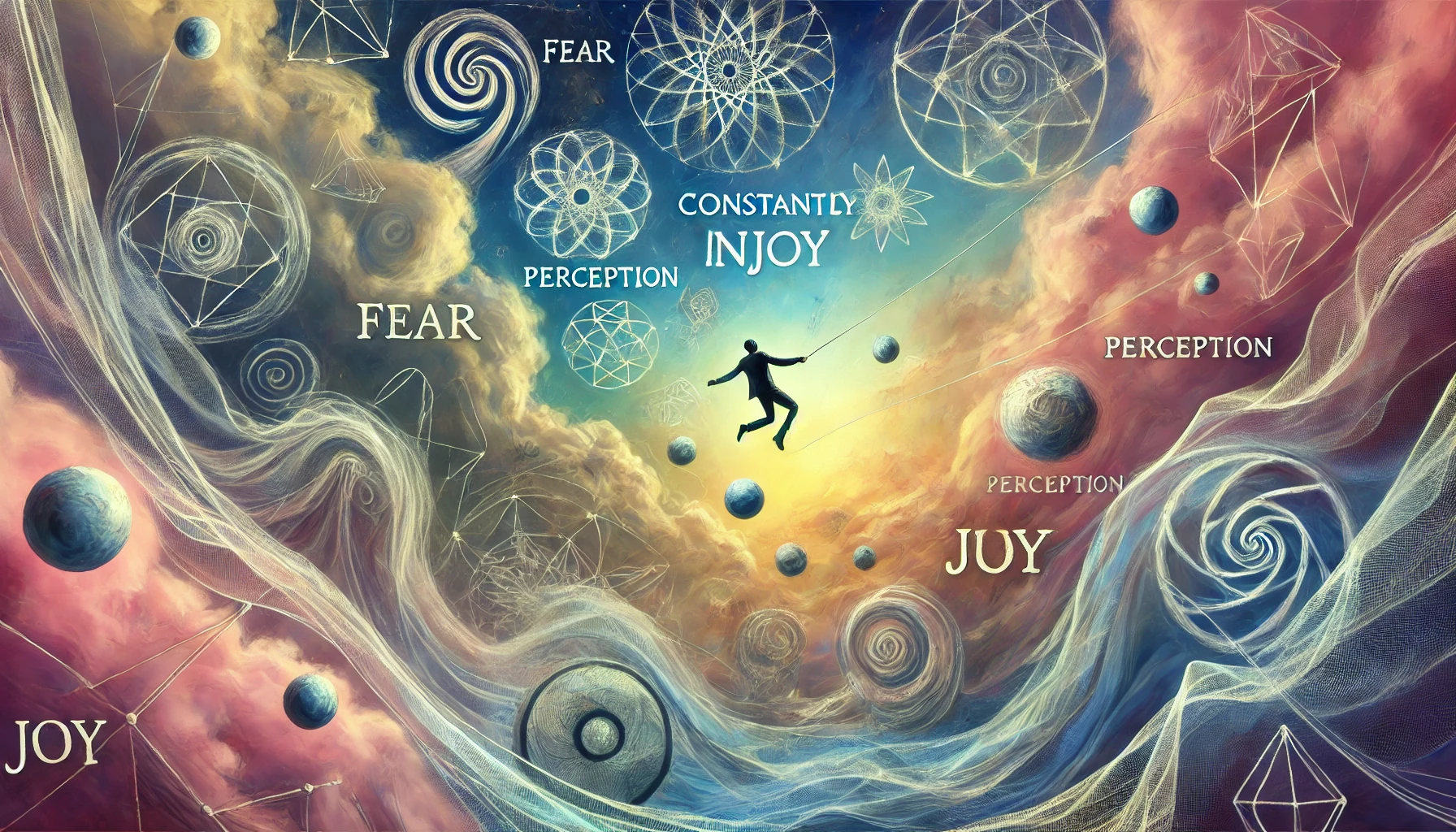

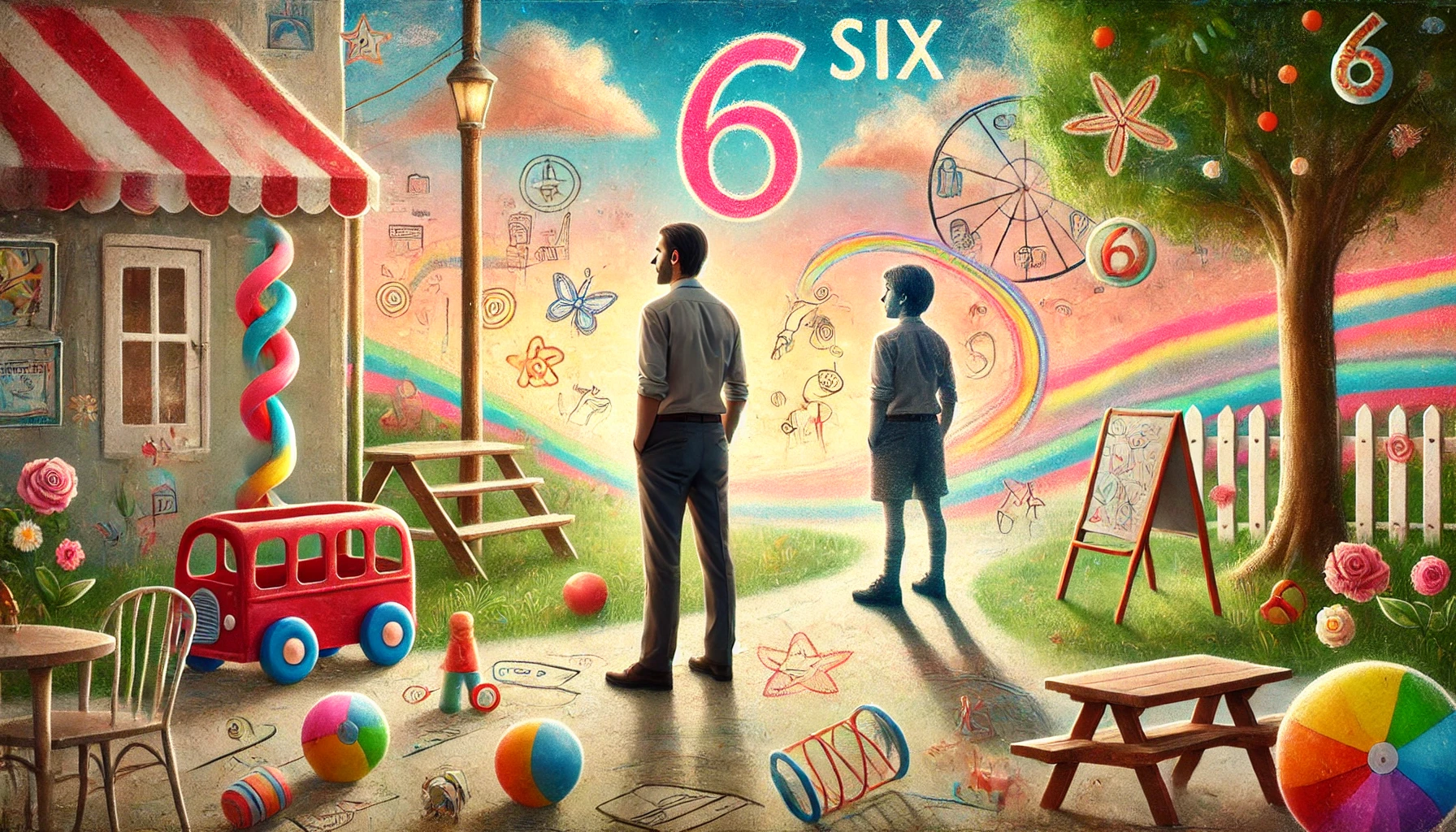
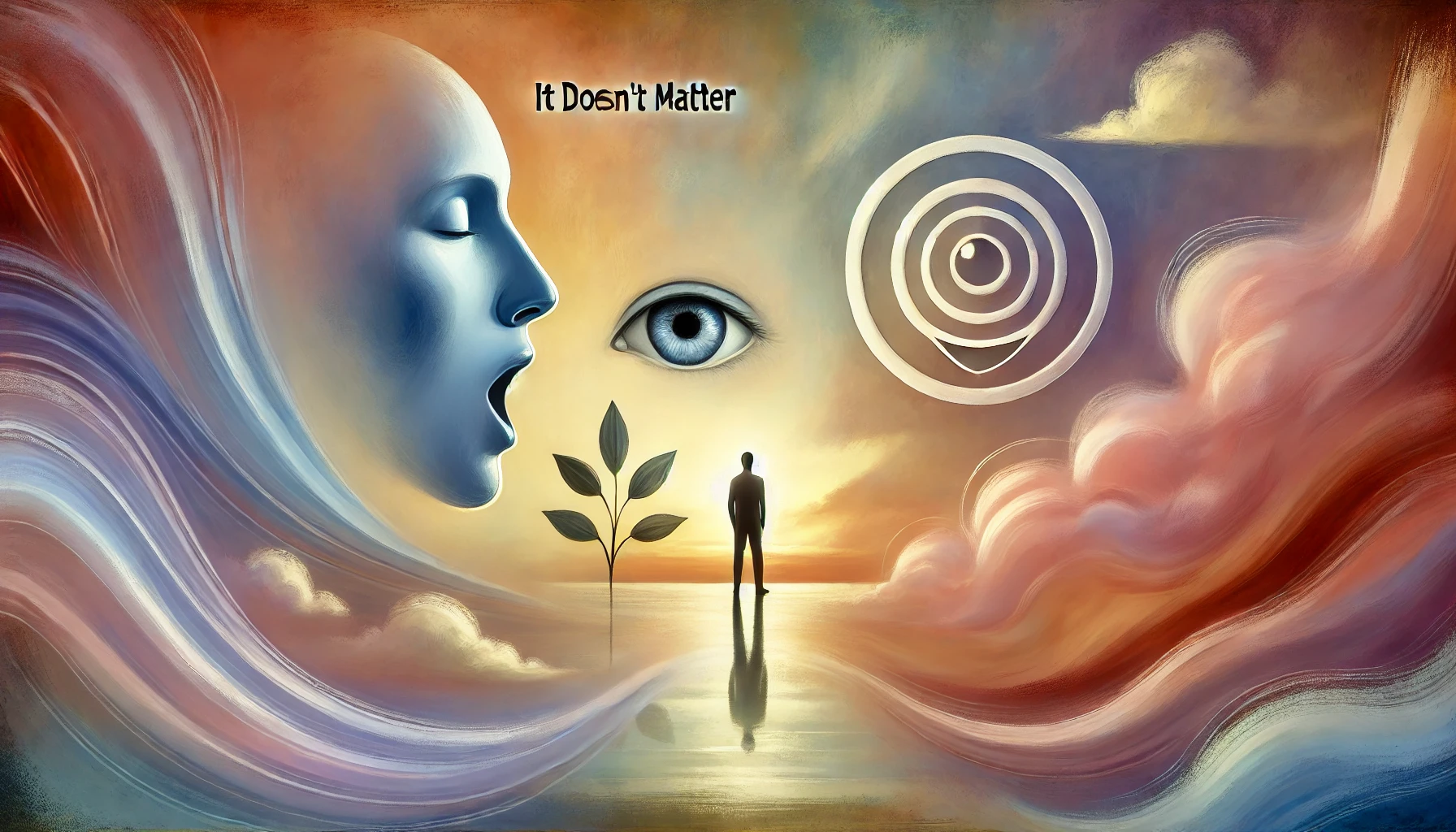

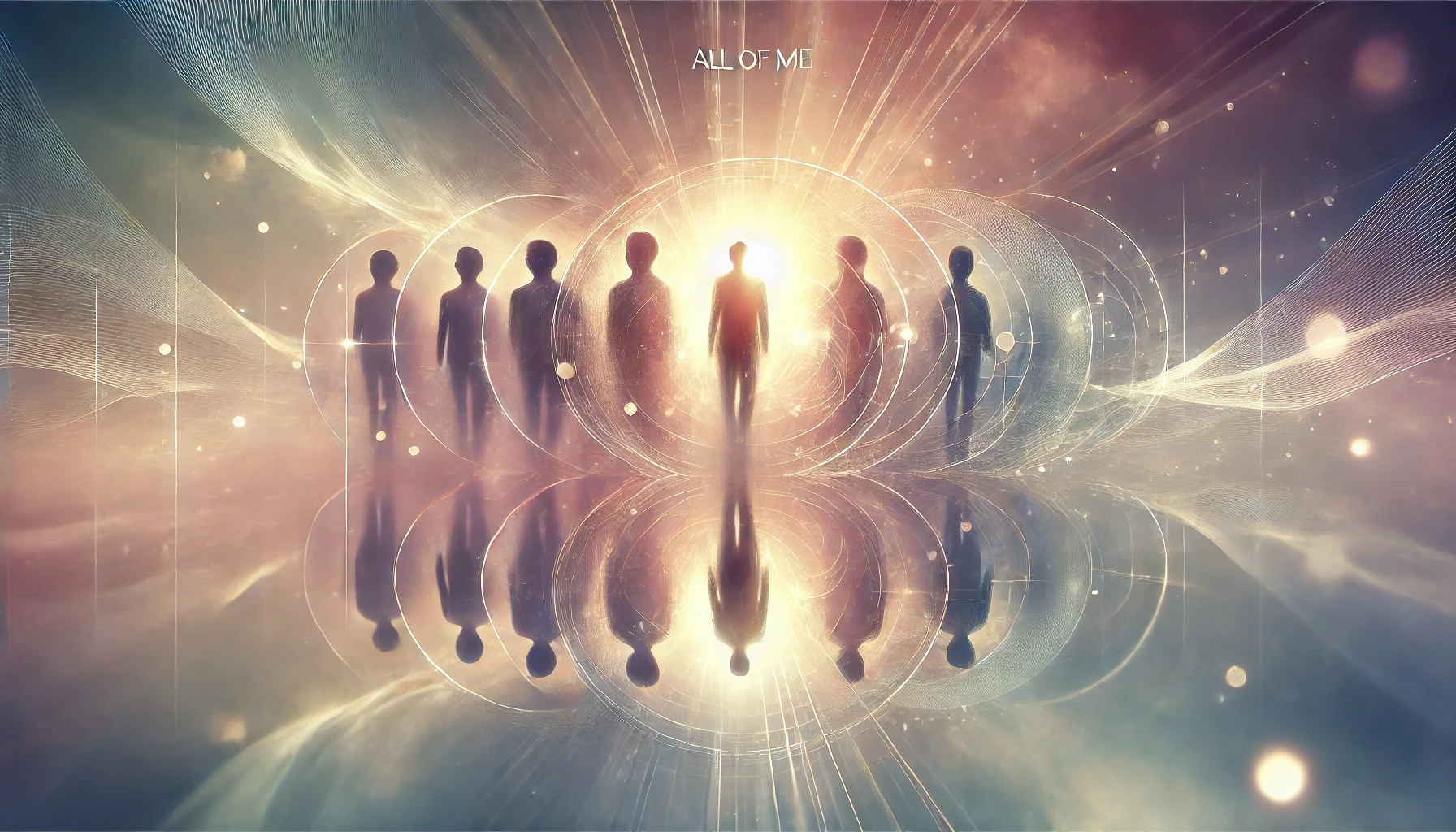
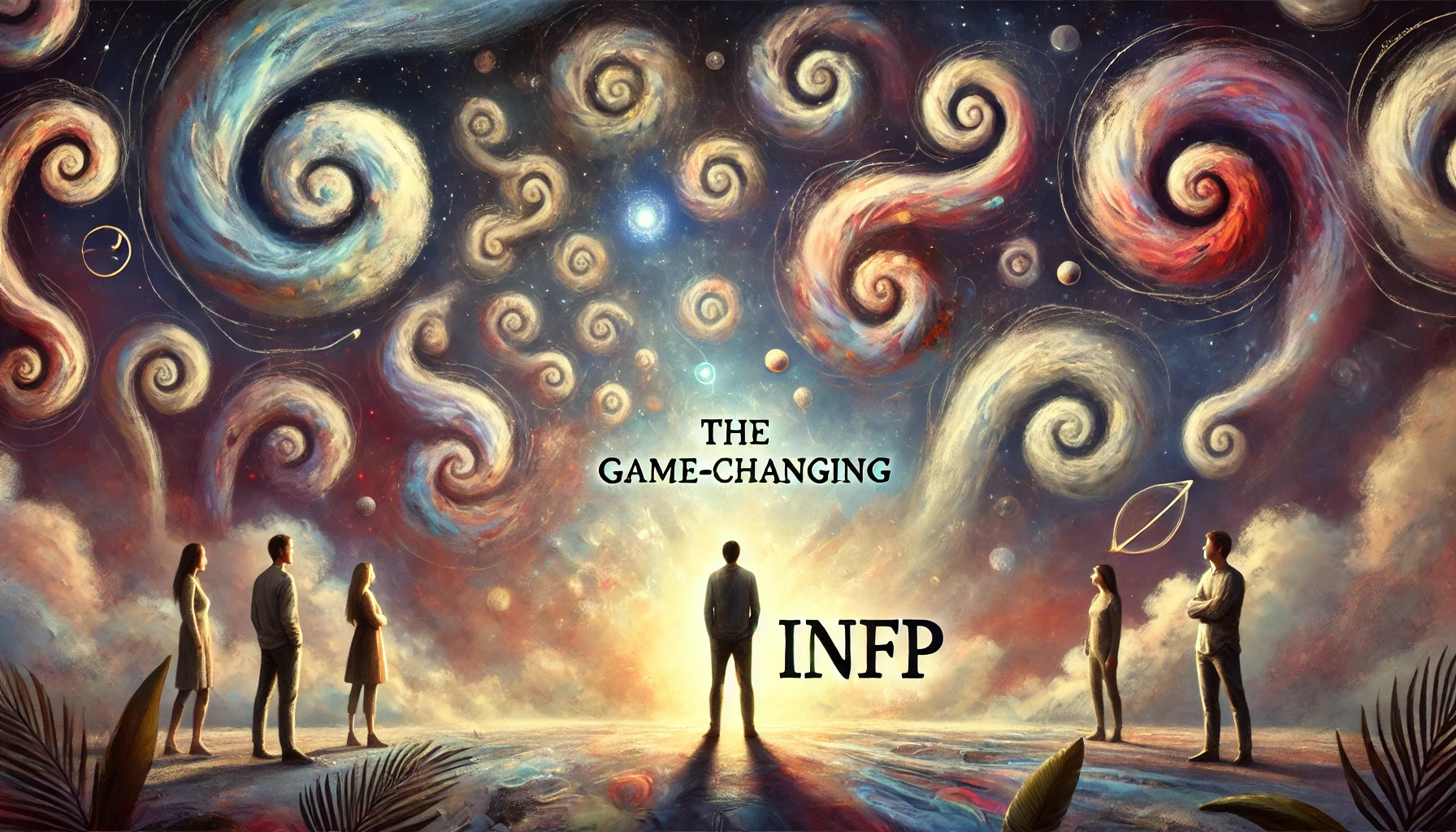


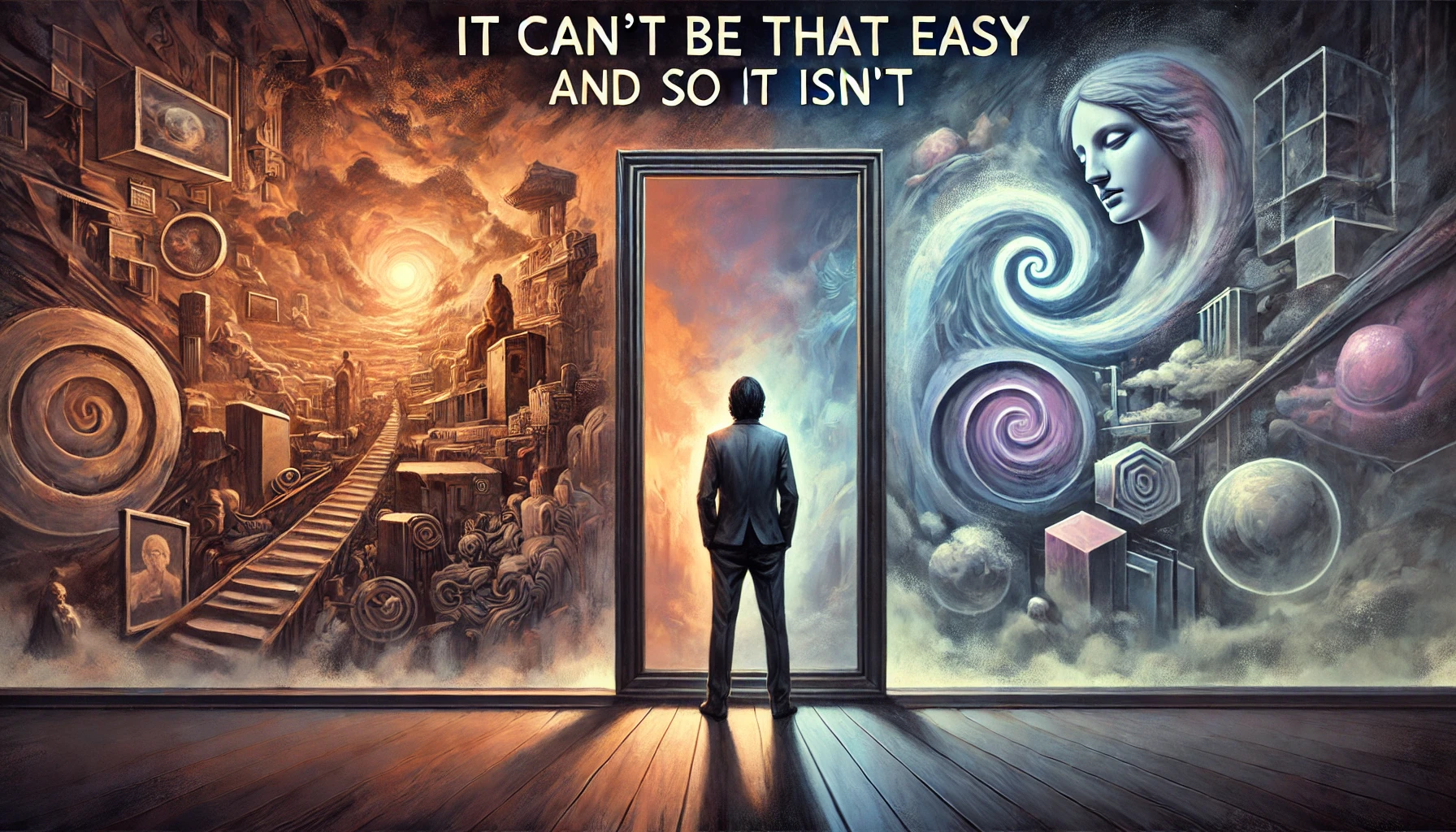



The poem titled “Don’t Tell Me” explores the theme of choosing happiness and love over rationality and external opinions. It challenges the idea that facts and logical reasoning should dictate one’s emotions and experiences.
The poem begins by emphasizing the contrast between the narrator’s friends’ negative opinions about a person and the positive feelings the narrator has for them. It suggests that the narrator sees something good in this person that others fail to recognize.
The next stanza introduces the perspective of doctors who warn about the addictive nature of this person. Despite the potential risks, the narrator describes the pleasant and comforting feelings they experience in this person’s presence, comparing it to a warm soft hug.
The refrain “If it’s true, I’ve lost my mind, don’t tell me” highlights the narrator’s resistance to acknowledging any negative aspects or consequences of their feelings. They express a willingness to embrace the intensity and passion of their emotions, even if it defies logic or reason.
The final stanza expresses a desire to let go of the complexities and challenges of life, suggesting that the details and undercurrents only serve to hinder their happiness. The narrator is determined to follow their heart and not fight against their feelings anymore.
Overall, the poem celebrates the power of love and happiness, advocating for embracing one’s emotions even in the face of potential risks or opposing viewpoints. It conveys a sense of surrender to the overwhelming force of love and the willingness to accept the consequences, suggesting that sometimes it is better to follow one’s heart rather than be constrained by rationality and external judgments.